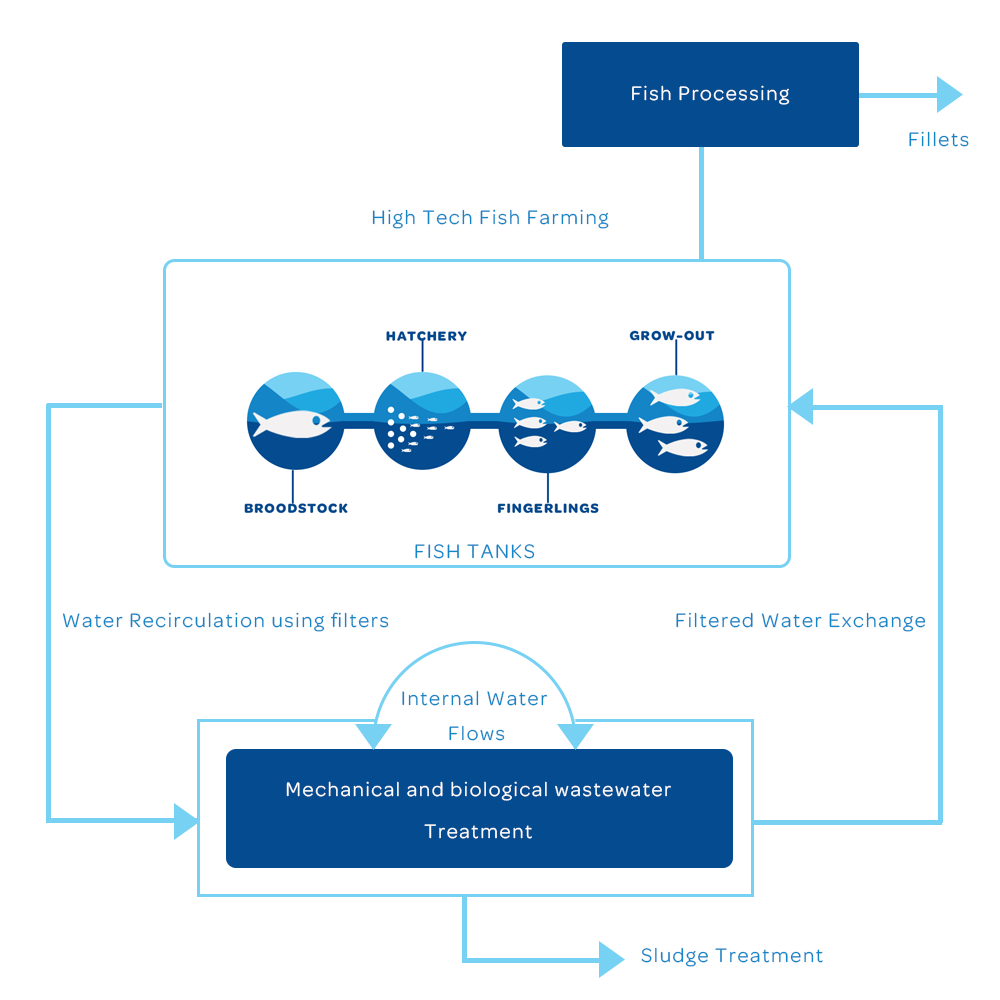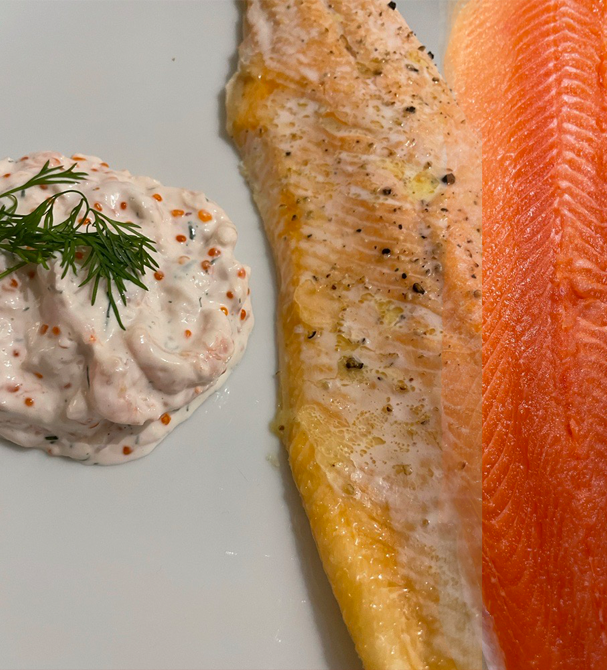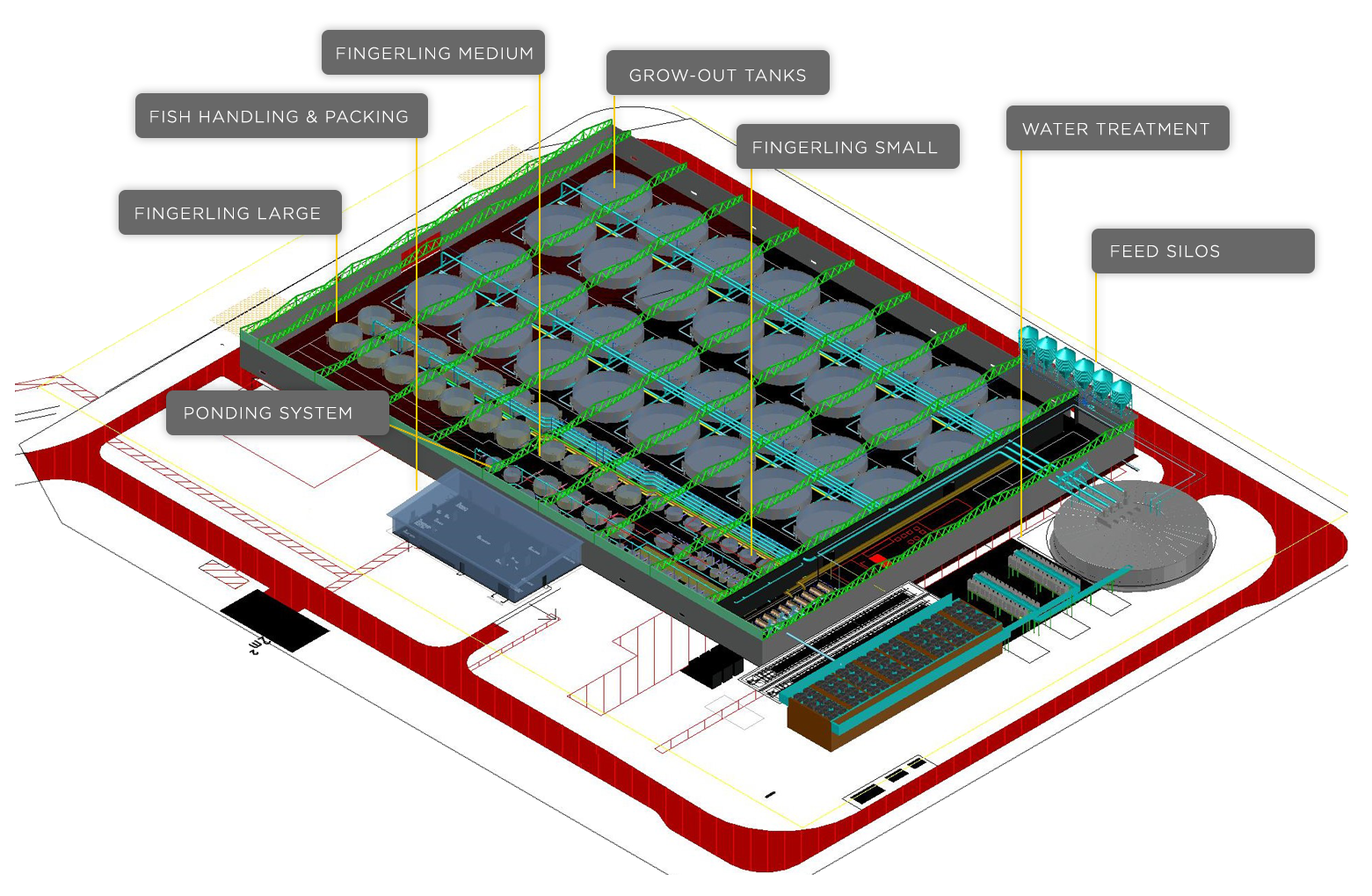The growing global population, the increasing awareness and the need for sustainable food production drives the development of enhanced food technology world-wide. This global mega-trend generates a systematic shift in all food producing sectors towards innovative pathways for improved farming methods.
For the aquaculture industry, this drives the need for more nutritious food produced in sustainable systems using innovative pathways. Through technology in combination with enhanced work methods, knowledge, and deep understanding of biology we can identify, engineer and develop the right systems for greater fish output at the same time as we protect the environment and enhance the use of our limited resources.

Land-based freshwater aquaculture farming has shown huge growth in the last decades. Building on this success, and further developing and enhancing the aquaculture production methods with the latest technology, we can further increase the production volumes at the same time as we reduce the water usage - giving better result for farmers, society, and the environment.
Recirculating Aquaculture System is a technology for farming fish or other aquatic organisms by reusing the water in the production. It can be operated either as an outdoor or an indoor system. The method can be used for any species grown in aquaculture such as fish, shrimps, clams, etc. Elements of RAS can also be used to upgrade or enhance existing land-based aquaculture, even traditional mud ponds can be significantly improved by elements from high-tech RAS water treatment.

Aquaculture involves breeding, growing, and harvesting various forms of marine life. This process allows farmers to produce different species of fish, marine plants and marine life in different aquatic environments.
To successfully produce top quality sea-food the water quality is key to success. In addition, the fish feed quality and how the feed is handled and delivered to the fish is a factor that should be optimized. Also, the living conditions for the fish, for example the tank or pond design, as well as water speed inside the tank/pond affects the overall health and well-being of the fish. And as everyone knows - happy fish is a tasty fish – maintaining and investing time and resources in good fish welfare benefits the farmer in the long run, as your product will be of the highest quality.
With our technology and system design you will maximise both sustainability and profitability through enhanched resource usage. With our technology also the waste streams can bring benifit and value as high quality by-products
* At ASG we work primarily with RAS systems for fish farms. We work on the total system balance, optimizing and modernizing this technology to lower the costs, make it easy to operate and to increase its availability to the user (the fish farmer).
* We have more than two decades of experience in water treatment.
* ASG has conducted a number of its own studies, analyses, modelling and tests in RAS.
* We have partnership with worlds top most universities and organization to understand depth knowledge of RAS in aquaculture. Some of Universities are Karlstad University(KAU), Royal Institute of Technology(KTH).
* ASG provide High end fish farming technology in land based aquaculture and founded around the vision of sustainable food production and technology
* We work in close collaboration with our customers to ensure complete satisfaction.

RAS allow high density fish production within a breeding environment that is controllable by the operator of the facility. Old traditional fish farming are non-controllable and they are having a low density of fish production. Some main pros and cons for RAS compared to traditional fish farming in net are mentioned below,

| Disadvantages of Old Traditional fish farming | Some Benefits of RAS |
|---|---|
| Traditional fish farming significantly impacts the environment due to open net pens and no water purification. All waste ends up in the water close to the fish affecting both fish health and the surrounding and downstream environment. | * Reduced pollution and CO2 - Emissions
* Improved Biosecurity. * Environment can be controlled. * ASG Modern RAS system is a continues production, which ensures an even flow of delivery. |
| Traditional fish farming has environmental concerns and often pollutes our water. | By using RAS we can create a circular economy without any wastage (e.g. Bio sand filters which can be used for the production of eco-biofertilizer and biogas). |
| External factors that pollute our water may cause fish loss and sometimes even harmful fish to eat. | * By growing fish on land using our technology you can produce fresh,healthy fish free at minimal risk from external factors.Cost of medication and fish losses are kept at a minimum
* Adapted for Technical and large scale Economic advantages. * Reduce CO2 compared old method |
| Contaminated water & eutrophication, antibiotics and drug residues directly in the biotope | Water can be treated with high end technology to improve fish welfare and the surrounding environment. |
| ✓ 100% Fish training to improve the fish immune system |
| ✓ Zero Emission of hazardous substances |
| ✓ 99% Fish waste removal |
| ✓ Bio-sludge can be converted into fuel for vehicles |
| ✓ 100% Growth Potential |
| ✓ 50% Fish Feed waste Reduced |
| ✓ 99% water saved |
| ✓ 100% Traceable Product |
| ✓ 100% Parasite free |
| ✓ 80% labour Dependency Reduced |
| ✓ 70% Reduction in CO2& GHG – Emissions |
ARE YOU WORRIED ABOUT THE PROJECT MANAGEMENT OF A FISH FARM FACILITY? WOULD YOU LIKE ONE COMPANY THAT DELIVERS THE WHOLE SCOPE?
DO YOU WANT TO REDUCE THE NUMBER OF SUPPLIERS, GET A FIXED PRICE AND AT THE SAME TIME A REDUCTION IN COST AND ADMINISTRATION?
IF YES! WE CAN DELIVER OUR TURN-KEY AQUACULTURE FACILITY AT FIXED PRICE.
"PASSIONATE AND DEDICATED ENGINEERS WITH LONG EXPERIENCE"